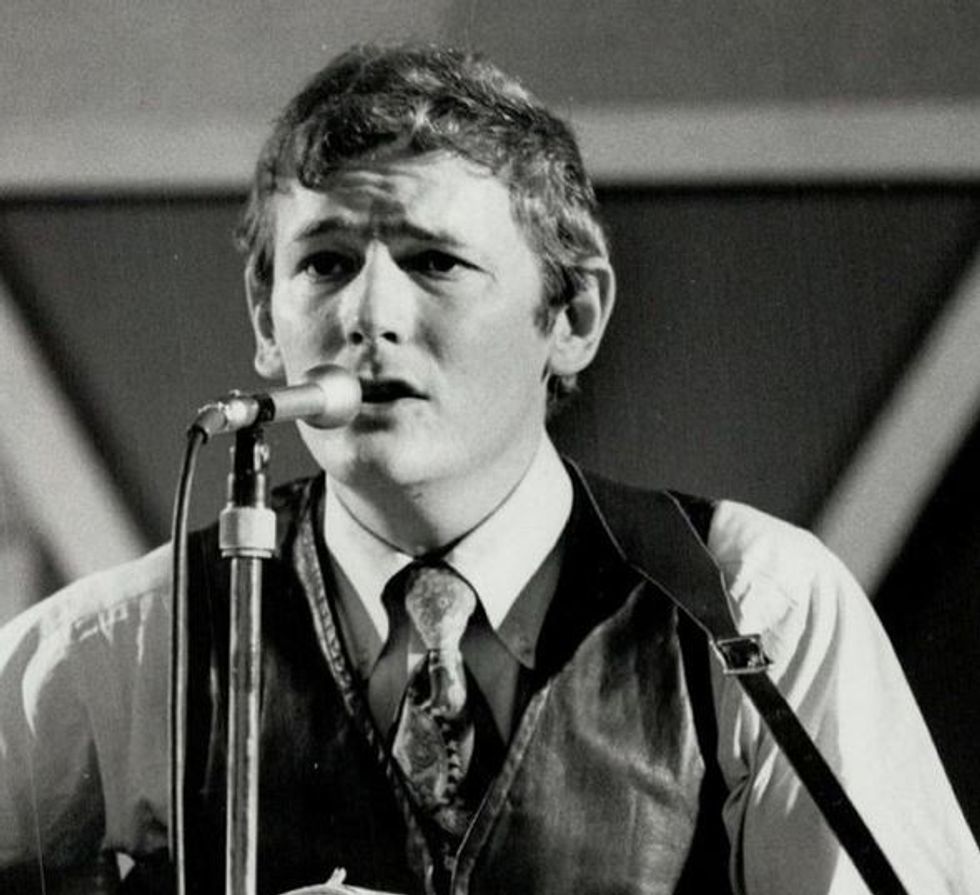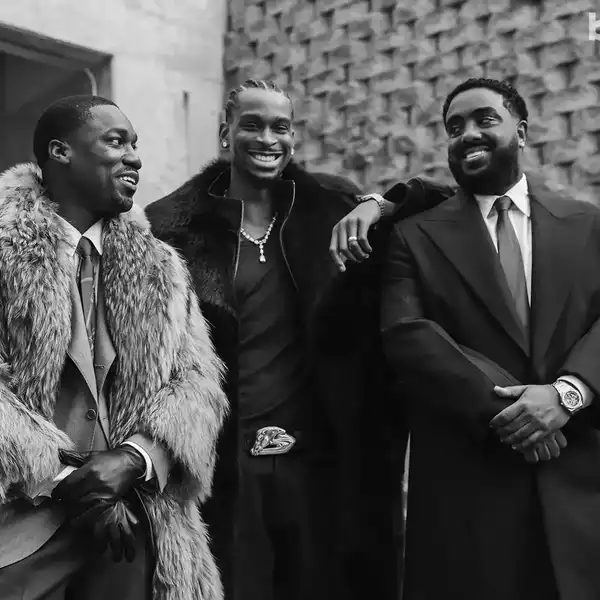RIP: Gordon Lightfoot Passes At Age 84
Before the Canadian bard rose to fame as a folk icon, Lightfoot explored a number of genres ranging from barbershop quartets to jazz, attending Westlake College in Los Angeles in 1958 to learn theory and hone his composition chops.

By Nick Krewen
Gordon Lightfoot, one of Canada’s most distinguished songwriters who enjoyed chart-topping success with songs such as Canadian Railroad Trilogy, If You Could Read My Mind, Sundown and Wreck of The Edmund Fitzgerald, died Monday. at age 84.
An official statement from the family reads: "It is with profound sadness that we confirm that Gordon Meredith Lightfoot has passed away. Gordon died peacefully on Monday, May 1, 2023, at 7:30 p.m. at Sunnybrook Hospital in Toronto. He died of natural causes. He was 84 years old."
A Companion of the Order of Canada, a Member of the Order of Ontario, a Canadian Music Hall Of Fame, the Songwriters Hall Of Fame, the Canadian Songwriters Hall Of Fame, and Canada’s Walk of Fame inductee who has 13 Juno Award victories to his credit, Gordon Lightfoot’s songs have been covered by hundreds of artists ranging from Elvis Presley, Barbra Streisand, Johnny Cash and Marty Robbins to Bob Dylan, Neil Young and Eric Clapton. Those who have counted Lightfoot as an influence include Jimmy Buffett, Ron Sexsmith, Steve Earle, Jim Croce, and Dan Fogelberg – and Dylan considered him a peer and his favourite songwriter.
Gordon Meredith Lightfoot was born in Orillia, Ontario, on November 17, 1938.
He made his first singing appearance as a singer at the age of six on local radio shows and cut his first record before his 10th birthday. Lightfoot also made his first unofficial appearance at Massey Hall – a venue that would become his performance home 170 times when he turned professional - competing and winning at a Kiwanis Music Festival while just barely into his teens.
The first song Lightfoot wrote wasn’t as deep or emotionally stirring as future hits Did She Mention My Name, Beautiful, or Carefree Highway, but The Hula Hoop Song unlocked the poet within and led the songwriter on a career path that resulted in 19 studio albums, millions sold, and security as a performer who was constantly in-demand, still performing more than 60 dates a year as he rolled into his ninth decade.
Before he rose to fame as a folk icon, Lightfoot explored a number of genres ranging from barbershop quartets to jazz, attending Westlake College in Los Angeles in 1958 to learn theory and hone his composition chops.
When he returned from L.A., Art Snider helped land him a job on CBC’s Country Hoedown as a chorus singer and dancer. Then Lightfoot was off to Sweden to marry his first wife Brita Olaisson in 1963 followed by a short stay in London, England.
When Lightfoot returned a short spell later, he landed gigs at Fran’s Restaurant and Steeles Tavern, the place where Ian & Sylvia saw him, and took his songs to Albert Grossman, their manager in New York. Grossman, who also managed Bob Dylan, Peter, Paul & Mary, and Odetta, signed him in 1964, got his act Peter, Paul & Mary to cover For Lovin’ Me and secured Lightfoot a record deal with United Artists, eventually breaking him into the lucrative U.S. market.
Toronto’s Yorkville coffeehouse scene was also percolating, and Riverboat coffeehouse owner Bernie Fielder hired Lightfoot for a residency, and according to Nicholas Jennings’biography Lightfoot, the crowds began seeking him out in ’65 – the same year his debut album Lightfoot! - which included timeless classics – The Way I Feel, For Lovin’ Me, Early Morning Rain and Ribbon Of Darkness, already a chart-topper for country singer Marty Robbins – was released.
In 1966, the CBC approached him to write a tribute to railroads and after three days of nicotine-and-caffeine fueled diligence, he wrote Canadian Railroad Trilogy, a picturesque six-minute chronicle and tribute to the construction of the Canadian Pacific Railway, and a song that knew no borders.
Lightfoot toured North America immediately and officially headlined his first Massey Hall show in 1967.
In 1969, he signed a five-year, $1M deal with Reprise Records in L.A., scoring his first Top 10 hit in 1970 with If You Could Read My Mind, which peaked at No 5 on the Billboard Hot 100. He also formed Early Morning Productions, cutting his ties with Grossman and hiring Al Mair, later the co-founder of Attic Records, as his manager.
In 1974, Lightfoot enjoyed his first U.S. No.1 hit with Sundown, largely inspired by Cathy Smith, his first serious girlfriend after his first marriage fell apart. In 1982 – years after splitting from Lightfoot - Smith would reach notoriety as the woman who gave Saturday Night Live comedian John Belushi a fatal dose of heroin. Although she was convicted for her crime and spent time in prison, Lightfoot remained loyal, helping her with legal fees and helping arrange a publisher for her memoir, Chasing A Dragon.
The Wreck of The Edmund Fitzgerald – recorded in a single take before Lightfoot’s 37th birthday – was a six-minute tale about the sinking of the SS Edmund Fitzgerald on Lake Superior in 1975 that may be his most famous song. A stickler for detail, Lightfoot adjusted the lyric of the song in 2010 when he learned some new information about the tragedy, changing the line "At 7 p.m. a main hatchway caved in; he said..." to "At 7 p.m. it grew dark, it was then he said…” for live performances only.
Lightfoot’s touring through the years - especially during the ‘70s and ‘80s - had been marred by incessant drinking, with some of those unsavoury moments during concerts well-chronicled in Jennings’ Lightfoot, but in 1982 he quit cold turkey and adopted a health regimen of exercise that was largely credited with saving his life in September 2002, when he suffered an abdominal aortic aneurysm just prior to a show in his Orillia hometown. Airlifted to Hamilton’s McMaster University Medical Centre, Lightfoot spent six-and-a-half weeks in a medically-induced coma before recovering, recording his Harmony album for Linus Entertainment, and returning to live performance in 2004.
A consummate professional who performed numerous benefits over his career and to whom loyalty was an important quality, Gordon Lightfoot was considered one of Canada’s finest songwriters.
Lightfoot is survived by his third wife Kim, six children from two previous marriages and relationships, as well as five grandchildren.
Read tributes in The Globe and Mail, Variety, CP, The Guardian, Billboard, and Rolling Stone.

















